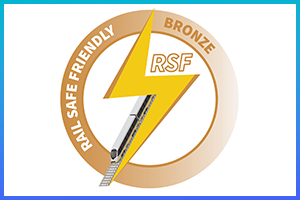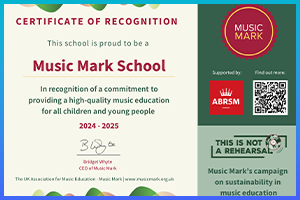What is meant by the term 'safeguarding'? (Terminology from Ofsted Report).
Safeguarding is the action that is taken to promote the welfare of children and protect them from harm.
Safeguarding means:
- protecting children from abuse and maltreatment
- preventing harm to children's health or development
- ensuring children grow up with the provision of safe and effective care-taking action to enable all children and young people to have the best outcomes.
Child protection is part of the safeguarding process. It focuses on protecting individual children identified as suffering or likely to suffer significant harm. This includes child protection procedures which detail how to respond to concerns about a child. Safeguarding children and child protection guidance and legislation applies to all children up to the age of 18. You may wish to read further - the DFE has published a document called 'Keeping Children Safe in Education, which can be found on the DFE website.
This is one area that Ofsted inspect when visiting a school. Ofsted found Woodhey's safeguarding procedures to be effective.
What is cyber-bullying?
The Department for Education define cyber-bullying as an aggressive, intentional act carried out by a group or individual, using electronic forms of contact, repeatedly and over time against a victim who can not easily defend him of herself.
Why does cyber-bullying often happen between children who were friends?
Traditionally, when children 'fell out' with each other, they either waited until the following day or spoke over the phone to put things right. Unfortunately, text messages are more immediate (you can send one before you have thought it through), written (so they do not just go away) and do not usually reflect the feeling behind the message.
Similarly, children have always talked about each other behind their backs and swapped stories about each other etc. Electronic media, such as 'Facebook', allows conversations between a few people to be seen by many ? and throw away comments? are now written down for all to see.
Should I contact the school if my child has been a victim of cyber-bullying?
It is most likely that cyber-bullying will happen outside of school time. For example, pupils should not be using mobile phones whilst in school and web-sites such as 'Facebook' are not accessible through the school ICT network.
Like most things that happen outside of the school it is difficult for us to deal directly with the incident. We are not responsible for our pupils at night or at the weekend and, of course, we cannot police the internet.
However, if we are notified about an issue we will always talk to all the children involved and warn them of the consequences. Most incidents will stop in this way. We will of course always deal with any follow-up incident that happens in school using our regular school sanctions.
 If the incident is serious you may wish to get advice from the CEOP website (there is a place to report incidents on-line, see below), or contact the local police.
If the incident is serious you may wish to get advice from the CEOP website (there is a place to report incidents on-line, see below), or contact the local police.
Why do schools ban the use of mobile phones in school?
Mobile phones are a distraction to students in school. During school hours, they should be focussing on learning and their relationships with the people around them. They are a distraction to the phone user and to others around them. There is no need for a child to use a mobile phone for communication purposes during the school day.
Some students also use them to arrange meetings at inappropriate times - for example, some students arrange to meet `in the toilets` halfway through a lesson.
Predominantly however, schools ban the use of mobile phones for safeguarding reasons.
Unfortunately, mobile phones are often used inappropriately. Students use them to photograph or video, often without the permission of the subject. They are also often the tool used by cyber-bullies and those who target others over social media. We feel that children should feel safe from this during school time.
Schools have thorough filters on their IT system to prevent students from accessing inappropriate information on the internet. They also filter all internal communications (e.g. student emails) for use of any concerning language e.g. relating to bullying, self-harm, prejudice etc. This is for the safety of all students. Unfortunately we cannot monitor mobile phones in the same way. Therefore for the safety of students, mobile phones are banned on school premises.
What is the school rule relating to headphones/earphones/earpods?
Listening to Music or other audio is a distraction to students in school. During school hours, they should be focussing on learning and their relationships with the people around them.
There is no need for a child to use their headphones/earphones/earpods during a lesson or between lessons. During the school day, students should keep their headphones/earphones/earpods switched off in their bag.
Students may not use headphones/earphones/earpods on the school site. As well as all teaching areas this also includes all other inside areas of the school including corridors, toileting areas, the canteen and all outdoor areas.
If students are found with their headphones/earphones/earpods out they will be confiscated. They will be able to collect at the end of the school day, when they may do so from Student Services. If a student becomes a persistent offender, then parents will be asked to collect the headphones/earphones/earpods from school.
If a student refuses to hand over their headphones/earphones/earpods then this will be considered to be defiance. The school’s Relationship and Behaviour Policy will be followed and the appropriate sanction applied.













